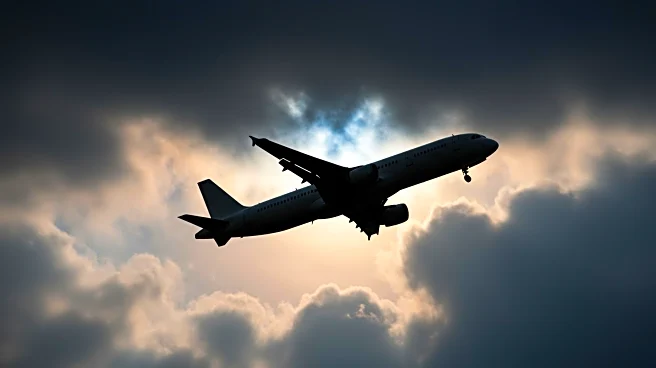What is the story about?
What's Happening?
Air Canada flight attendants recently went on strike to protest unpaid work, particularly for tasks performed on the ground before flights. The strike, which disrupted travel during the peak summer season, ended with a tentative agreement between Air Canada and the Canadian Union for Public Employees. The deal reportedly includes a pay increase and partial pay for boarding duties and cabin checks, marking a significant shift in compensation practices. This development could set a new standard for aviation workers in North America, as other airlines may follow suit to remain competitive.
Why It's Important?
The strike and subsequent agreement highlight a longstanding issue in the aviation industry regarding unpaid ground work. By addressing this, Air Canada could influence other airlines to reevaluate their compensation structures, potentially leading to widespread changes across the industry. This shift could improve working conditions for flight attendants, who often face low wages despite the demanding nature of their jobs. The move may also impact airline operating costs and ticket prices, as companies adjust to new compensation models.
What's Next?
The tentative agreement must still be approved by Air Canada's flight attendants, and its acceptance could prompt similar actions by other airlines. As contract negotiations continue for other carriers, the industry may see a ripple effect, with more companies adopting ground pay to attract and retain staff. This could lead to broader discussions about fair compensation and labor practices in the aviation sector.
















